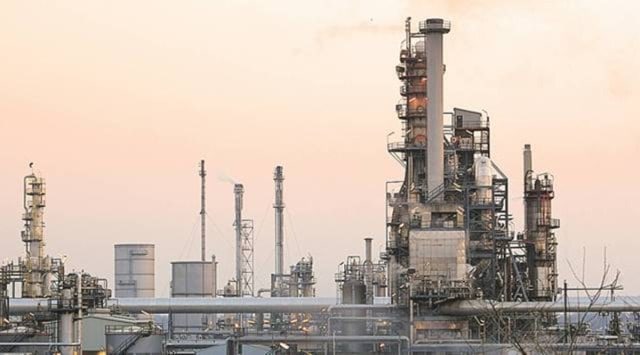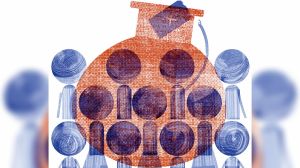Telangana to set up 5 more waste-to-energy plants, generate 101 MW of power by December 2024
With this, about 15,000 MT of solid waste will be utilised to generate energy from waste every day. Hyderabad, which produces about 8,500 MT of solid waste daily, will soon process 100% of its solid waste.
 At present, the lone WTE plant is able to generate 24 MW of power, processing about 1,500 MT (metric tonnes) of RDF (Refuse Derived Fuel), and by scaling up rapidly the city hopes to lead the country in WTE conversion. (Representational Photo)
At present, the lone WTE plant is able to generate 24 MW of power, processing about 1,500 MT (metric tonnes) of RDF (Refuse Derived Fuel), and by scaling up rapidly the city hopes to lead the country in WTE conversion. (Representational Photo) Telangana government has decided to set up five more waste-to-energy (WTE) plants in addition to the one currently operational in Hyderabad’s legacy dumpyard Jawaharnagar in a bid to be able to generate as much as 101 MW of power by December next year.
At present, the lone WTE plant is able to generate 24 MW of power, processing about 1,500 MT (metric tonnes) of RDF (Refuse Derived Fuel), and by scaling up rapidly the city hopes to lead the country in WTE conversion.
The Municipal Administration department has set plans and targets for WTE plants at Dindigul (15 MW), to be ready by July 2023, and Jawaharnagar Phase 2 (24 MW), Pyaranagar (15 MW), Yacharam (12 MW) and Bibinagar (11 MW), all four to be ready by December 2024. With this, about 5,100 MT of RDF, equivalent to 15,000 MT of solid waste, will be utilised for WTE every day.
Hyderabad alone produces about 8,500 MT of solid waste daily. “This means Hyderabad shall be processing 100 per cent of its solid waste, but we shall also have a tie-up with a cluster of urban local bodies (ULB) and gram panchayats to process their solid waste at these locations and this is a perfect example of circular economy,” Municipal Administration and Urban Development Minister K T Rama Rao said Monday.
KTR was speaking after launching the Rethink – Reduce, Reuse and Recycle (RRR) Knowledge hub, a state government initiative in partnership with the Administrative Staff College of India (ASCI) on the occasion of World Environment Day (June 5).
A circular economy entails markets that give incentives to reusing products, rather than scrapping them and then extracting new resources. In such an economy, all forms of waste, such as clothes, scrap metal and obsolete electronics, are returned to the economy or used more efficiently, according to the UN Conference on Trade and Development (UNCTAD).
Rethink is an IoT (Internet of Things) platform that connects RRR centres in towns with recyclers, MSMEs and start-ups, and aims to accelerate circularity in waste management and prevent plastics and waste from going into landfills and water bodies.
RRR centres in each Hyderabad ward
Stating that the Greater Hyderabad Municipal Corporation (GHMC) will set up RRR centres in each of its 150 wards, KTR said as many as 1,962 RRR centres are operational in 142 ULBs across the state and since May 20 this year, these centres have collected over 200 MT of material such as plastic goods, books, clothes and footwear, etc that will be refurbished, reused or remade into new products.
The minister said about 190 tons of recyclables are being collected in Hyderabad alone every day. He said there were 206 dry resource collection centres (DRCCs) of which 87 are managed by women’s self-help groups (SHGs), earning a revenue of approximately Rs 6.3 crore per year. The remaining 122 DRCCs’ dry waste is sorted, baled and sold to recycling and RDF units, he said.
According to him, processing of wet waste from Jawaharnagar dumpyard generates about 300 tonnes of compost every day and it is marketed through fertiliser manufacturing companies like Coromandel. With over 229 compost sheds in other ULBs, with a capacity of 1,120 tonnes per day, a revenue of Rs 8.4 crore per annum is earned, he said. The minister spoke about the revenue generation aspects of environmental conservation.
Further, on circular economy, KTR said the construction and demolition (C&D) waste processing facilities at Fathullaguda and Jeedimetla – each of 500 tonnes per day capacity – are able to recycle waste into concrete aggregates and their by-products are used for such as kerb stones, parking tiles, footpath tiles, sub-base for roads etc.
3 new C&D waste plants
KTR said three more C&D waste processing plants are coming up in Nalgonda, Sangareddy and Warangal. He added that currently Suryapet and Siddipet ULBs are sustainably promoting plastic waste management by converting the plastic waste from the city into pavement tiles and bricks.
Rao said the Suryapet, Medchal, Jawaharnagar, Kompally and Dammaiguda ULBs have scientific facilities for processing wet and dry wastes while four bio-methanation plants at Greater Hyderabad Municipal Corporation, Greater Warangal Municipal Corporation, Siddipet and Siricilla ULBs are converting organic waste to biogas which is used for cooking.
The minister underlined that Hyderabad is set to soon become the only city in India to treat 100 per cent of its sewage. The Hyderabad Metro Water Supply and Sewerage Board (HMWSSB) at present treats 714.3 MLD of waste water through its 20 sewerage treat plants (STPs) and another 31 STPs with a capacity to treat 1,259.5 MLD will be available soon. He said the government has approved setting up of Roof Top Solar Power Plants of 31.12 MW at STPs, pump houses, reservoirs and buildings of HMWSSB.












